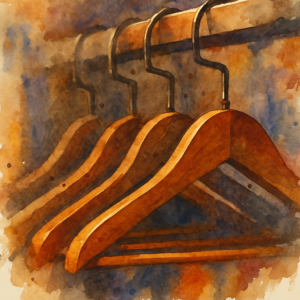Improve your French listening comprehension with this clip from Balades. It’s 36 words in 13 seconds. How many can you hear and understand?
Start quiz, type what you hear, then join the conversation.
Did you find this one challenging or easy? Did you hear something diffferent? What surprised you? What levels did you complete? Comment below and share what’s opening up for you with this quiz.
This clip is from Balades Episode 3. Listen and fill in what you hear below. Read more and find a translation below. Find the full podcast here.
Press play and take the transcription quiz to practice your French listening comprehension.
(You can use the ⋮ to adjust playback speed)
The above audio sample and transcription is from Balades ep. 3. We do not own the content. Listen to the entire episode here.
As I look out the window
There’s a lot of distractions in my life. I hear my parents playing “Emily in Paris” in the other room. I should know this French, but then some I do understand. Most I don’t follow. The distractions are plentiful.
What pulls you from what you want to do? What pulls you back in? For me, it’s that drive to be able to speak the language. To function in every day life in France. That’s the drive. What drives you? And maybe there will be some people who take notice and help along the journey.
If you’re just joining us as a beginner, I recommend you start with the first dfepisode of Balades. Follow along daily for new clips.
How did you find today’s clip compared to yesterday’s clip? I tend to be most comfortable when the clip is around 150wpm. I love Balades for my current level, around A1 (hopefully progressing to A2). Hopefully you’re enjoying these clips too. Even when there’s a fast clip, it’s still manageable. The right amount of challenge. What do you think? Join us for the next quiz.
How are you finding these shorter snippets? I’m open to any and all feedback, as always. Let me know.
The snippet in English
Find a translation of this snippet here, how much of this did you hear?
Je suis venue déjà plusieurs fois, mais toujours en voiture. Alors que je regarde par la fenêtre de tous les côtés et essaye de m’y retrouver avec mon plan, une des dames remarque mon hésitation :
I’ve been there several times before, but always by car. As I look out the window on all sides and try to figure out my plan, one of the ladies notices my hesitation:
The above translation from Deepl. Source
What does “plusieurs fois” mean?
“Plusieurs fois” translates to “several times” or “multiple times” in English.
Usage and Interpretation
- This phrase is used to indicate that an action or event has occurred repeatedly or on numerous occasions.
- It denotes frequency and is often used to describe recurring situations or repeated actions.
Examples
- “J’ai visité Paris plusieurs fois.” (I have visited Paris several times.)
- “Elle a vérifié le document plusieurs fois.” (She checked the document multiple times.)
Context
- “Plusieurs fois” can be used in a variety of contexts, from everyday conversations to more formal reports or narratives.
- It’s suitable in discussions about personal experiences, habitual actions, studies, or observations that involve repetition or frequency.
Summary
“Plusieurs fois” means “several times” or “multiple times” in French. It’s a common phrase used to express the repetition or frequency of an action or event. The phrase is versatile and can be applied in numerous contexts where recurring activities or situations are being described.
What does “tous les côtés” mean?
“Tous les côtés” translates to “all sides” or “every side” in English.
Usage and Interpretation
- This phrase is used to refer to all the different aspects or parts of something.
- It can be used literally, as in referring to the physical sides of an object, or figuratively, to mean various perspectives or aspects of a situation or issue.
Examples
- Literal: “Il a peint tous les côtés de la maison.” (He painted all sides of the house.)
- Figurative: “Il faut considérer tous les côtés du problème.” (We need to consider all sides of the problem.)
Context
- “Tous les côtés” is applicable in a wide range of contexts, from discussions about physical objects to debates about ideas or strategies.
- It’s a versatile phrase that can be used in both informal and formal settings.
Summary
“Tous les côtés” means “all sides” or “every side” in French. It’s used to refer to all aspects or parts of something, either in a literal sense, like the sides of an object, or figuratively, like different perspectives on an issue. The phrase is adaptable and can be used in various contexts to indicate comprehensiveness or thoroughness.
What does “m’y retrouver” mean?
“M’y retrouver” translates to “find myself in it” or “make sense of it” in English.
Usage and Interpretation
- This phrase combines the reflexive form “me retrouver” (to find myself) with the pronoun “y,” which often refers to a situation, condition, or context.
- It’s used to express the ability to understand, adapt to, or benefit from a particular situation or set of circumstances.
Examples
- “Dans cette situation compliquée, je m’y retrouve difficilement.” (In this complicated situation, I find it hard to make sense of it.)
- “Avec ce plan, je m’y retrouve mieux.” (With this plan, I can understand it better/find my way better.)
Context
- “M’y retrouver” can be used in various contexts, especially in discussions about complex, confusing, or challenging situations.
- It’s suitable in both personal and professional settings, often used to express one’s orientation or adaptation in certain circumstances.
Summary
“M’y retrouver” means “to find myself in it” or “to make sense of it” in French. It’s used to convey understanding, adapting to, or deriving benefit from a situation or set of circumstances. This phrase is versatile and can be applied in a range of contexts where clarity, orientation, or personal benefit in a situation is being discussed.
What does “remarque mon hésitation” mean?
In the phrase “remarque mon hésitation,” “remarque” translates to “notice” or “observe.” The sentence means “Notice my hesitation” or “Observe my hesitation” in English.
Usage and Interpretation
- “Remarque” is the imperative form of “remarquer,” which means “to notice” or “to observe.”
- The speaker is requesting or pointing out that their hesitation should be noticed or taken into account.
Examples
- In a conversation: “Remarque mon hésitation avant de répondre, cela te montre que je ne suis pas sûr.” (Notice my hesitation before answering; it shows you that I am not sure.)
- In a situation where someone is uncertain: “Remarque mon hésitation, cela indique mes doutes.” (Observe my hesitation; it indicates my doubts.)
Context
- This phrase can be used in various situations where the speaker wants to draw attention to their uncertainty or indecision as significant or telling.
- It’s often used in personal interactions, discussions, or debates to highlight non-verbal cues or inner feelings.
Summary
In “remarque mon hésitation,” “remarque” means “notice” or “observe.” It’s used to draw attention to the speaker’s hesitation, suggesting that this hesitation is significant and should be acknowledged or considered in the context of the conversation or situation.
What did you love about this?
Comment below with your feedback! Tells us what you think. Send a note or leave a comment below. We appreciate the feedback. Also, we’re always looking for partners to build this site and grow the content available.
 Kids Songs
Kids Songs 







